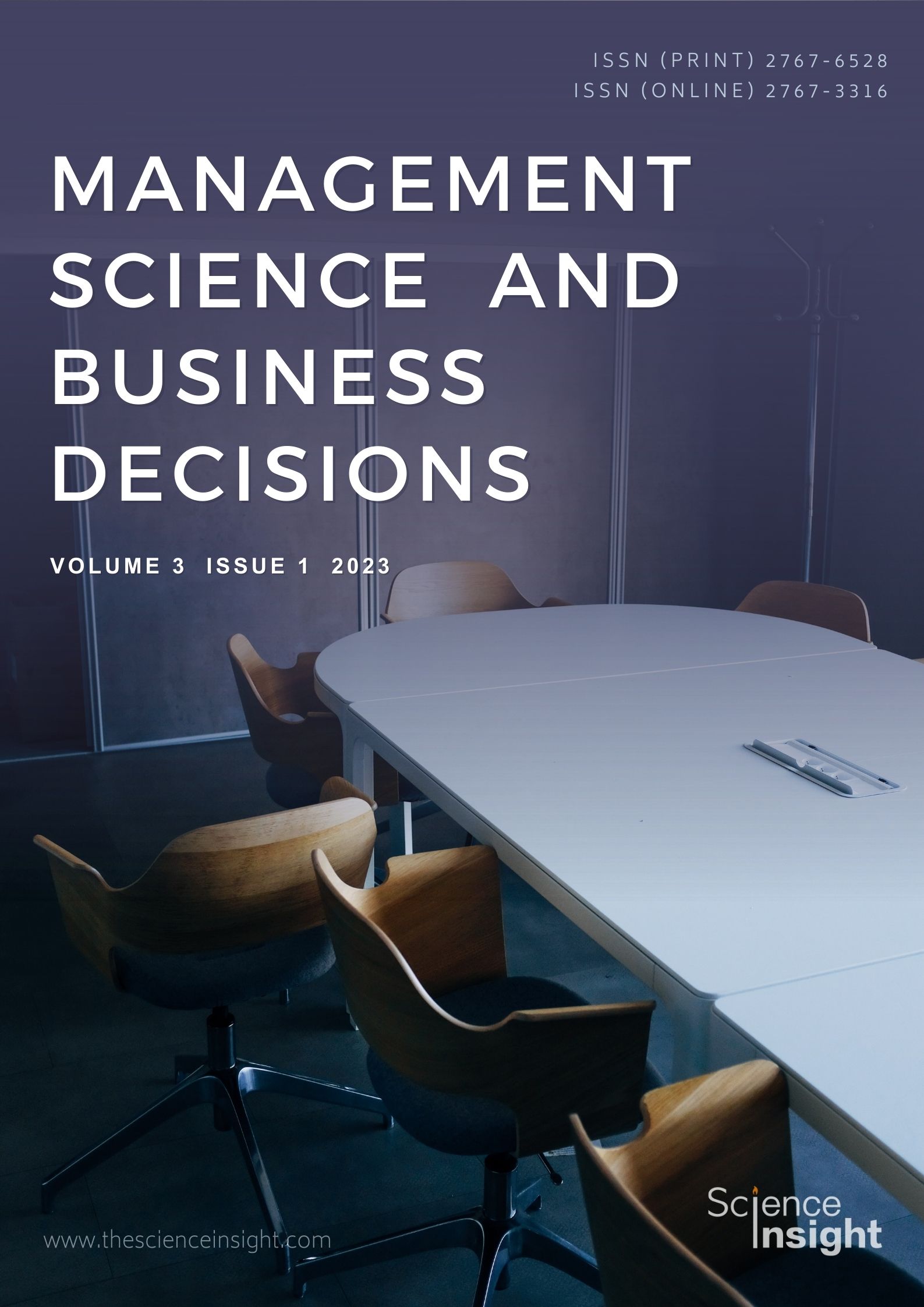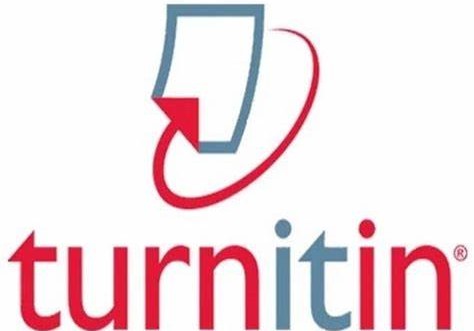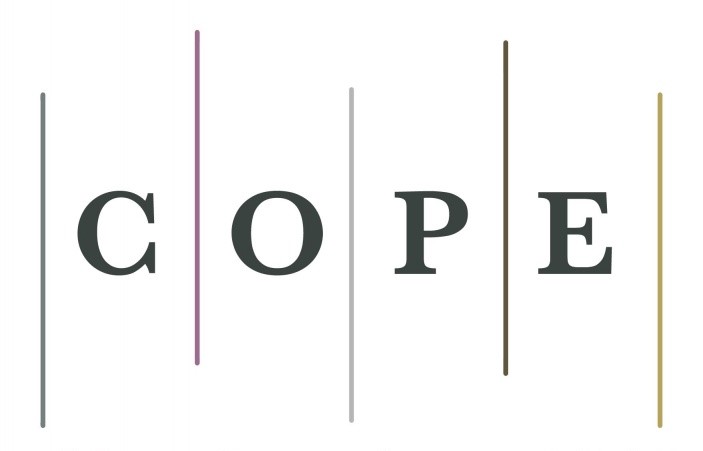Generative AI for Business Decision-Making: A Case of ChatGPT
DOI:
https://doi.org/10.52812/msbd.63Keywords:
Decision-making, Business, ChatGPT, Artificial intelligence, Generative AI, ChatbotAbstract
ChatGPT (Generative Pretrained Transformer) is a chatbot using artificial intelligence (AI) launched by OpenAI, which is an AI research and deployment company. The ChatGPT has taken the technology world by storm. The ChatGPT is a trained AI model that can chat almost like a human. The dialog format allows the ChatGPT to answer follow-up questions, admit mistakes, challenge incorrect premises, and reject inappropriate requests. The ChatGPT can be utilized for compiling research, drafting marketing content, brainstorming ideas, delivering aftercare services, increasing customer engagement, and many others. The ChatGPT can provide enormous opportunities for companies leveraging this breakthrough technology strategically. Thus, we evaluate ChatGPT as a tool in common business decision-making cases in the current study. For example, the ChatGPT was asked about the impacts of a hypothetical merging of two supermarket chains in Sweden. In another example, the ChatGPT was asked about recommendations for investment in a Brazilian oil company. Finally, it was asked about the factors that influence online shopping behavior. The results are significant and demonstrate the tremendous potential of the ChatGPT in revolutionizing the corporate world.
References
Antoniou, A., Storkey, A., & Edwards, H. (2018). Data Augmentation Generative Adversarial Networks. arXiv. https://arxiv.org/pdf/1711.04340.pdf
Aydın, Ö., & Karaarslan, E. (2022). OpenAI ChatGPT Generated Literature Review: Digital Twin in Healthcare, Emerging Computer Technologies 2 (pp. 22-31). İzmir Akademi Dernegi., Available at SSRN: https://ssrn.com/abstract=4308687
Chiriac, I. (2021). The Impact of Economy on Mergers & Acquisitions in European Markets. Journal of Financial Studies and Research, https://doi.org/10.5171/2021.206635
Cho, S. & Chung, C. Y. (2022). Review of the Literature on Merger Waves. Journal of Risk Financial Management, 15(10), https://doi.org/10.3390/jrfm15100432
Clark-Murphy, M., & Soutar, G. N. (2004). What individual investors value: Some Australian evidence. Journal of Economic Psychology, 25(4), 539–555. doi: 10.1016/s0167-4870(03)00056-4
CNN Business. (2023). Petroleo Brasileiro SA Petrobras. CNN Business. https://money.cnn.com/quote/forecast/forecast.html?symb=PBR (accessed on January 20, 2023)
Cole, S. A., & Shastry, G. K. (2009). Smart Money: The Effect of Education, Cognitive Ability, and Financial Literacy on Financial Market Participation. Boston, MA: Harvard Business School.
Goodfellow, I., Pouget-Abadie, J., Mirza, M., Xu, B., Warde-Farley, D., Ozair, S., Courville, A., & Bengio, Y. (2020). Generative Adversarial Networks. Communications of the ACM, 63(11), 139-144. https://dl.acm.org/doi/10.1145/3422622
Jeblick, K., Schachtner, B., Dexl, J., Mittermeier, A., Stüber, A. T., Topalis, J., ... & Ingrisch, M. (2022). ChatGPT Makes Medicine Easy to Swallow: An Exploratory Case Study on Simplified Radiology Reports. arXiv. https://arxiv.org/pdf/2212.14882.pdf
Källström, J., Heintz, F., (2019). Reinforcement learning for computer generated forces using open-source software. In Interservice/Industry Training, Simulation, and Education Conference (pp. 1-11). http://amz.xcdsystem.com.s3.amazonaws.com/44ECEE4F-033C-295C-BAE73278B7F9CA1D_abstract_File4313/PaperUpload_19197_0823034931.pdf
Lindholm, A., Wahlström, N., Lindsten, F. & B. Schön, T. (2022). Machine Learning: A First Course for Engineers and Scientists. Cambridge University Press
Mesatania, C. P. (2022). Factors Influencing Online Buying Behavior: A Case of Shopee Customers. Management Science and Business Decisions, 2(1), 19-30, https://doi.org/10.52812/msbd.34
Nadeem, M. A., Qamar, M. A. J., Nazir, M. S., Ahmad, I., Timoshin, A., & Shehzad, K. (2020). How investors attitudes shape stock market participation in the presence of financial self-efficacy. Frontiers in Psychology, 11, 553351. https://doi.org/10.3389/fpsyg.2020.553351
OpenAI (2022). ChatGPT. https://chat.openai.com/chat
Pavlik, J. V. (2023). Collaborating With ChatGPT: Considering the Implications of Generative Artificial Intelligence for Journalism and Media Education. Journalism & Mass Communication Educator, 78(1), 84-93. https://doi.org/10.1177/10776958221149577
Susnjak, T. (2022). ChatGPT: The End of Online Exam Integrity?, arXiv. https://arxiv.org/pdf/2212.09292.pdf
Tamkin, A., Brundage, M., Clark, J., & Ganguli, D. (2022). Understanding the Capabilities, Limitations, and Societal Impact of Large Language Models. arXiv. https://arxiv.org/pdf/2102.02503.pdf
.

Downloads
Published
How to Cite
Issue
Section
License
Copyright (c) 2023 Science Insight

This work is licensed under a Creative Commons Attribution-NonCommercial 4.0 International License.
Creative Commons Non Commercial CC BY-NC: The work is distributed under the terms of the Creative Commons Attribution-NonCommercial 4.0 License which permits non-commercial use, reproduction and distribution of the work without further permission provided the original work is properly attributed.











